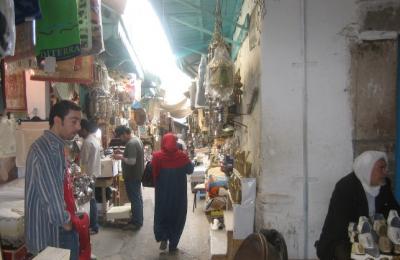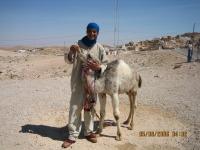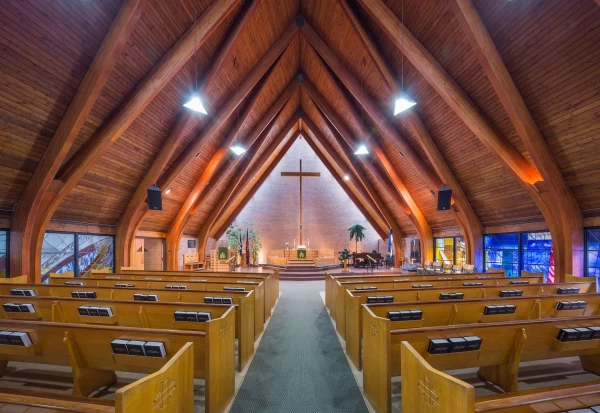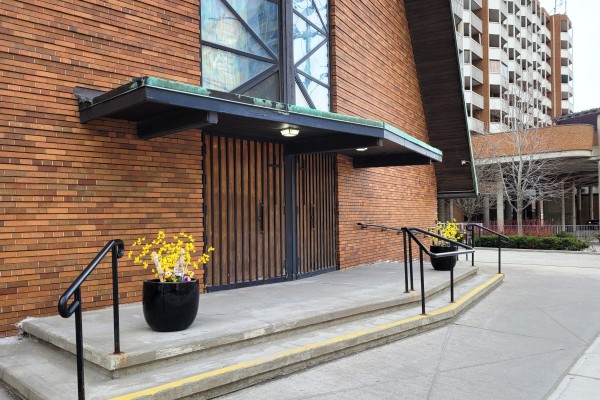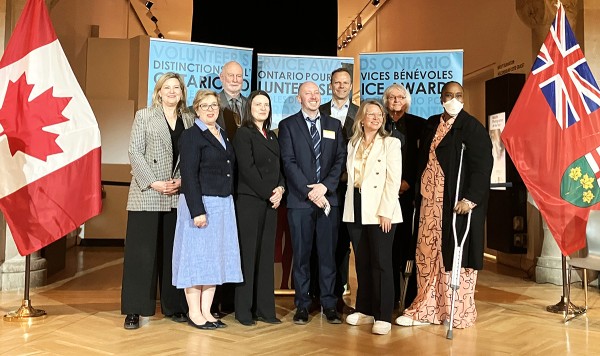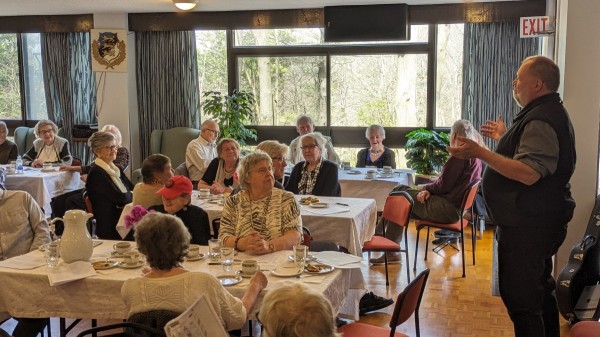Letter to my Father by Anna Mirjam Kaber
Translated by Alliki Arro
Editorial comment: "We had to go our separate ways when I was seven. I will try to give you an account of the road taken without you - to recall some of the events and the people who walked that road with me..." writes Anna Mirjam Kaber in her vivid memoir of her family's deportation to Siberia in June 1941. Her account is given more poignancy in that it is addressed as a letter to her missing father, the Estonian industrialist Joakim Puhk, arrested by the Soviet authorities in 1940. Anna Mirjam Kaber was recently awarded the Red Cross of Estonia for her work on behalf of the victims of repression. The public silence around the "Siberian odyssey" has only been broken in Estonia since 1991 and details are only now becoming known to the world-wide Estonian community. The editors would welcome readers' comments on this series, by e-mail if you wish:
BACKGROUND: A SHORT BIOGRAPHY OF ANNA MIRJAM’S FATHER:
Joakim Puhk was born as the third child and first son to Jaak and Anna-Luise Puchk on May 13 (25) 1888. The family was to have five more sons. His mother, Anna-Luise, was born at Imavere Manor in Viljandimaa province, where her father was a gardener. His father, Jaak, came from an old-established Viljandimaa family with 18 children.
BACKGROUND: A SHORT BIOGRAPHY OF ANNA MIRJAM’S FATHER:
Joakim Puhk was born as the third child and first son to Jaak and Anna-Luise Puchk on May 13 (25) 1888. The family was to have five more sons. His mother, Anna-Luise, was born at Imavere Manor in Viljandimaa province, where her father was a gardener. His father, Jaak, came from an old-established Viljandimaa family with 18 children. Jaak had a head for business and an entrepreneurial streak. When he was 20, he incorporated himself and opened a store on his father’s farm. A few years later he already owned a sizeable store in Pilistvere. In 1889 Jaak got permission to build a match-factory on the lands of the Viljandi Church manor. There was a time when Puchk’s matches were known all over Estonia. At the turn of the century, however, Russia acquired a monopoly in the manufacture of matches. As a result, prices dropped, and profits became negligible. Then the family moved to Riga and established a wood-working plant and continued in business. The energetic Joakim, who graduated from the Riga Commercial School in 1904, and counted a lot of university students among his friends, knew the Riga revolutionaries. His participation in the events of the 1905 revolution led to his arrest in 1906, when the wave of reprisals began. He was sentenced to three years imprisonment. Because the defendant was a minor, his sentence was reduced by a third. After serving his sentence, Joakim Puhk turned a new page, and joined his father’s business enterprises.
In 1907 the Puhk family moved to Tallinn. The young people in the family were put to work; the business started to prosper. In 1914 Jaak, Joakim’s father, named his company the “Jaak Puhk and Sons” Department Store. In 1916, his son Joakim’s name was already to be found among the names of the Merchants’ Guild II. On July 27, 1917, Jaak Puhk died in his prime. Five sons, Joakim, Eduard, Voldemar, Aleksander and Evald — the oldest 29, and the youngest 19, continued to develop the business according to the wishes of their father. Jaak’s sixth son, Ernst had died in childhood, as the result of an accident. Anna Luise, the mother of the boys, dedicated herself to the Pilu farm in Viljandimaa province after her husband’s death. On February 24, 1918, the Republic of Estonia was born. In the same year Joakim Puhk became a member of the National Economic Commission and was named a deputy to the minister of Food and Agriculture.
In his capacity as an economic advisor, he was a member of the Estonian Delegation to the Paris Peace Conference. The mission of the delegation was to muster support for the newly created state. Joakim Puhk with his expertise in trade relations was present at the signing of the peace treaty with Russia in Tartu. In 1921 he became the honorary consul of Lithuania in Tallinn and in 1927 he was made the honorary consul-general of Finland in Estonia. In 1931, he also became the dean of the consular corps.
The company “Puhk and Sons” flourished. In 1924 the company bought stock in the “Ilmarine” plant and built a huge mill adjacent to it for the processing of domestic grain. The economy of Estonia was going through a difficult period, but Ilmarine was flexible, and was able to move with the times. On November 10, 1925, the newly formed business council “Eesti Kaubandus-Tööstuskoda” held its inaugural meeting. Joakim Puhk was chosen to be its Chairman.
In 1931 Anna-Luise Puhk died. In her 14 years as a widow, she had succeeded in turning Pilu into an Estonian model farm. The farm kept accurate books and featured renovated stables and barns, ponds in the low-lying areas, and greenhouses where grapes were grown. After her death, the sons continued operating the farm on the precepts laid down by their mother. In 1921 Joakim Puhk married Anna, the youngest daughter of Hans Sinisoff, a successful entrepreneur. On August 15, 1927, a daughter, Eva-Agne was born, and on March 19, 1933, another daughter Anna Mirjam.
ANNA MIRJAM’S MEMOIR: When I return to the summers of my childhood, I find Pilu dominating the weave of memory. I remember the orchard, the meadows, the strawberry field, the spruce lined drive, the rye growing in the field, and much, much more. There were always lots of people at Pilu in the summer: relatives and friends. They always brought their children along. I no longer had a grandmother there, but she was still a part of Pilu and I could hear my parents saying time and time again “mother” said this or that. In 1932 my father bought 250 hectares of land, a beautiful spot, on the Jägala River bordering on Kõrvemaa — marshland for the most part, but encompassing a beautiful forest as well. On it had been a farm called Pikaveski. Three rivers came to-gether on his property — the Jägala, the Vetla, and the Jänijõe. The place was remote and quiet; that was its charm. In 1939, he started to build a new house there. The house was never really finished. The annual summer week-end of the student organization “Ühendus” took place here in 1939. My father had not gone to Tartu University, but “Ühendus” had a few supporting members, who did not belong to the organization itself.
Fate did not permit me to talk to my father about life and people — I was too young, I did not know his friends, and, as a result, I did not know him as a person. Years later, I have tried to find fragments of his life, his beliefs, and his enterprises. I have learned that he had a large circle of friends and acquaintances, that he was very sociable, and that he was a good talker. He enjoyed long hunting and fishing trips and went on interesting hikes and trips that were short on creature comforts. Father returned from one trip quite ill. I could not wait for him to come home, but I was not allowed in to see him. When the doctor had left , I sneaked into father’s room and sat on a footstool next to his bed. I do not remember what we talked about, but when they found me, we had both fallen asleep. I remember one time when it was me who was sick. We had a big sheep dog named Poika. He was not allowed to come into any of the rooms. However, I had enticed Poika to keep me company in my sick room. When I heard footsteps in the hall, I hid Poika under the bed. It was my father who was coming. After he had talked to me for a while, he went into his study, brought out a gramophone, placed it next to the bed, and cranked it up. Poika came out from under the bed and sat next to the gramophone to listen to the music. Father tried to keep himself from laughing. When I think back on this incident, I immediately remember all the details. And I do remember father as someone who was cheerful, with a great sense of humour. Because father was away so much, we were always waiting for him to come home, and the whole household rejoiced when he returned, especially my sister and I. It was not that we expected presents; it was because he was coming home. Our family was not in the habit of giving frequent gifts. (to be continued)
LETTER TO MY FATHER
Järjejutt
TRENDING






